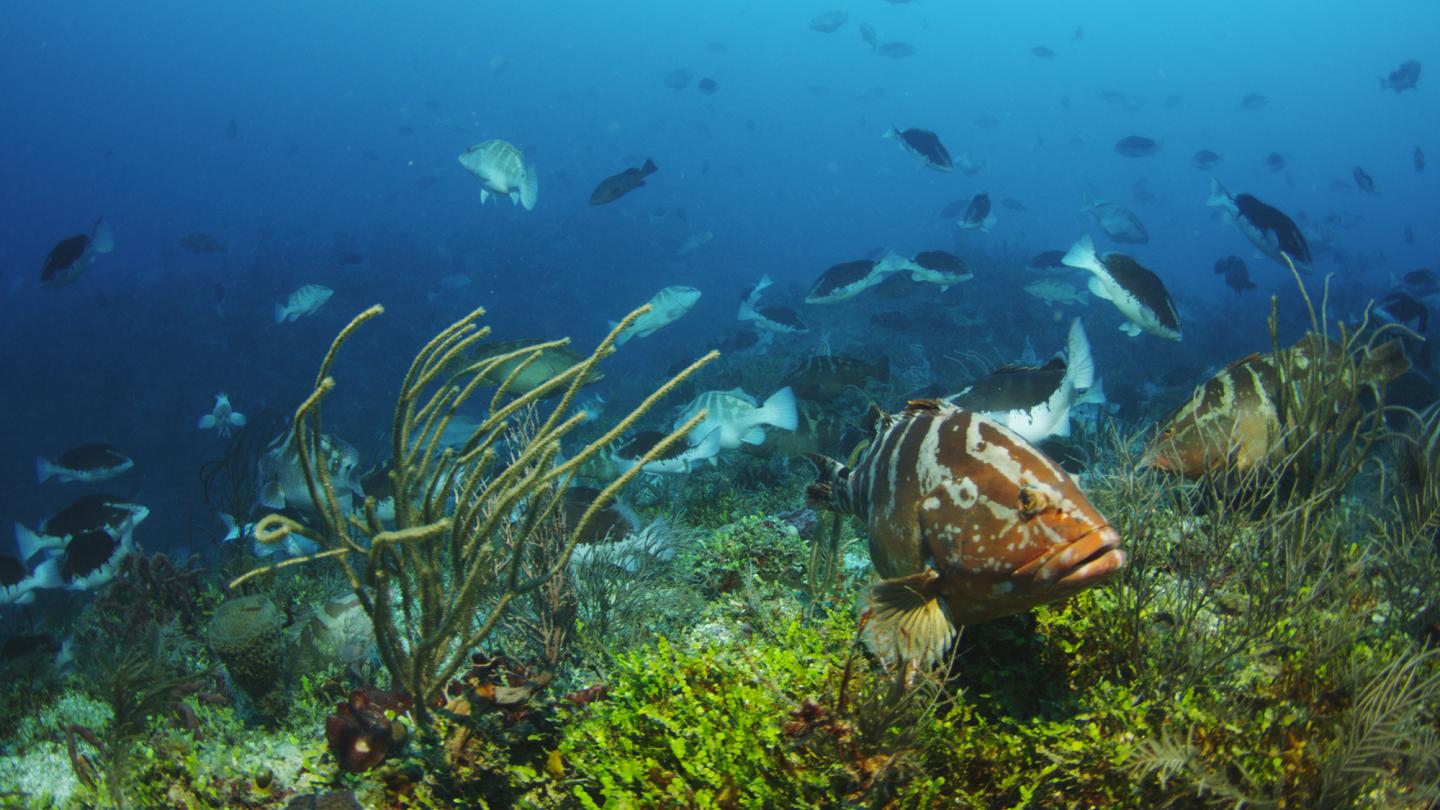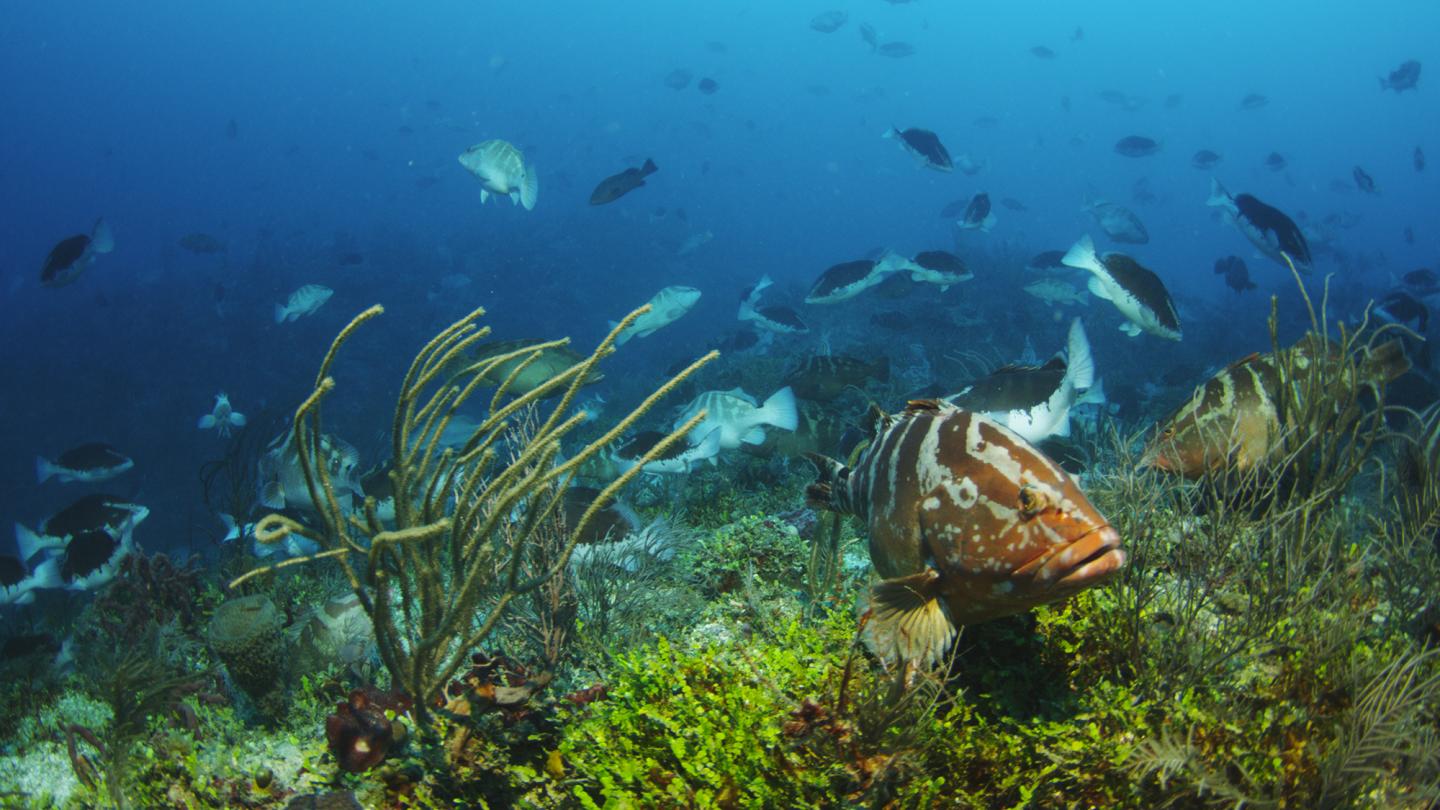
Credit: Photo by Alfredo Barroso.
For more than 20 years, conservationists have been working to protect one of the most recognizable reef fish in the Caribbean, the endangered and iconic Nassau grouper, and thanks to those efforts, populations of this critical reef fish have stabilized in some areas. But in a new paper, published in the journal Diversity and Distributions, marine scientists said climate change might severely hinder those efforts by the end of this century.
By 2100, breeding habitats of the Nassau grouper are projected to decline 82 percent from where they were in 2000 if nothing is done to mitigate climate change. These spawning habitats are critical to the survival of the species, said scientists from The University of Texas at Austin and East Carolina University. Additionally, suitable habitats for nonspawning fish are expected to decline 46 percent.
The paper also points out that because Nassau groupers have a narrow temperature range they can tolerate while spawning, this may create a bottleneck that will affect population recovery.
"The effects of climate change could override some of the successes of conservation efforts at local and regional scales," said Brad Erisman, assistant professor of fisheries biology at The University of Texas at Austin. "That is, if Nassau grouper no longer migrate to spawn in a particular region because the water is too warm, then protecting spawning sites in that region will be ineffective. Likewise, if the months when spawning occurs in certain regions shifts in response to climate change, then seasonal protection measures in those regions will need to shift accordingly to ensure that spawning is still protected."
The Nassau grouper contributes significantly to the ecosystem as a top predator and can act as a kind of canary in the coal mine for reef health. Their reproduction success depends on large breeding events, called spawning aggregations, where hundreds to thousands of fish gather in one area for a few days to mate. But these mass spawning events also make them easy targets for commercial fishing, and they were overfished to the point the species became endangered.
Beginning in the 1990s, several countries including the U.S. have put outright bans on fishing Nassau grouper. Cuba and the Dominican Republic restrict fishing during spawning season (December-February), and some areas have restricted fishing in specific breeding grounds.
"To truly understand how climate will impact fishes, we need to know how it will impact the most vulnerable life history stage, spawning. If this link in the life cycle is jeopardized, the species as a whole will be in jeopardy," said Rebecca G. Asch, an assistant professor of fisheries biology at East Carolina University.
Grouper are also important for the overall health of the ecosystem. Large predators such as sharks feed on the gathered grouper. Whale sharks and manta rays feed on the eggs that are released.
"The loss of these important, energy-rich events has negative impacts that span entire food webs and ecosystems," Erisman said.
There is some good news, scientists said. If strong steps are taken to mitigate climate change, breeding habitat is projected to decline by only 30 percent.
Next, the scientists plan to expand their research to look at how climate change may affect spawning in 12 species of grouper and snapper in the Caribbean and the Pacific. The model developed could aid researchers in studying climate change effects on other fish species that depend on large spawning events such as salmon, tuna and cod.
###
Funding for the research was provided by the Nippon Foundation-Nereus Program and the National Academy of Sciences Gulf Research Program Early Career Fellowship.
Media Contact
Esther Robards-Forbes
[email protected]
512-232-0654
@UTAustin
http://www.utexas.edu





